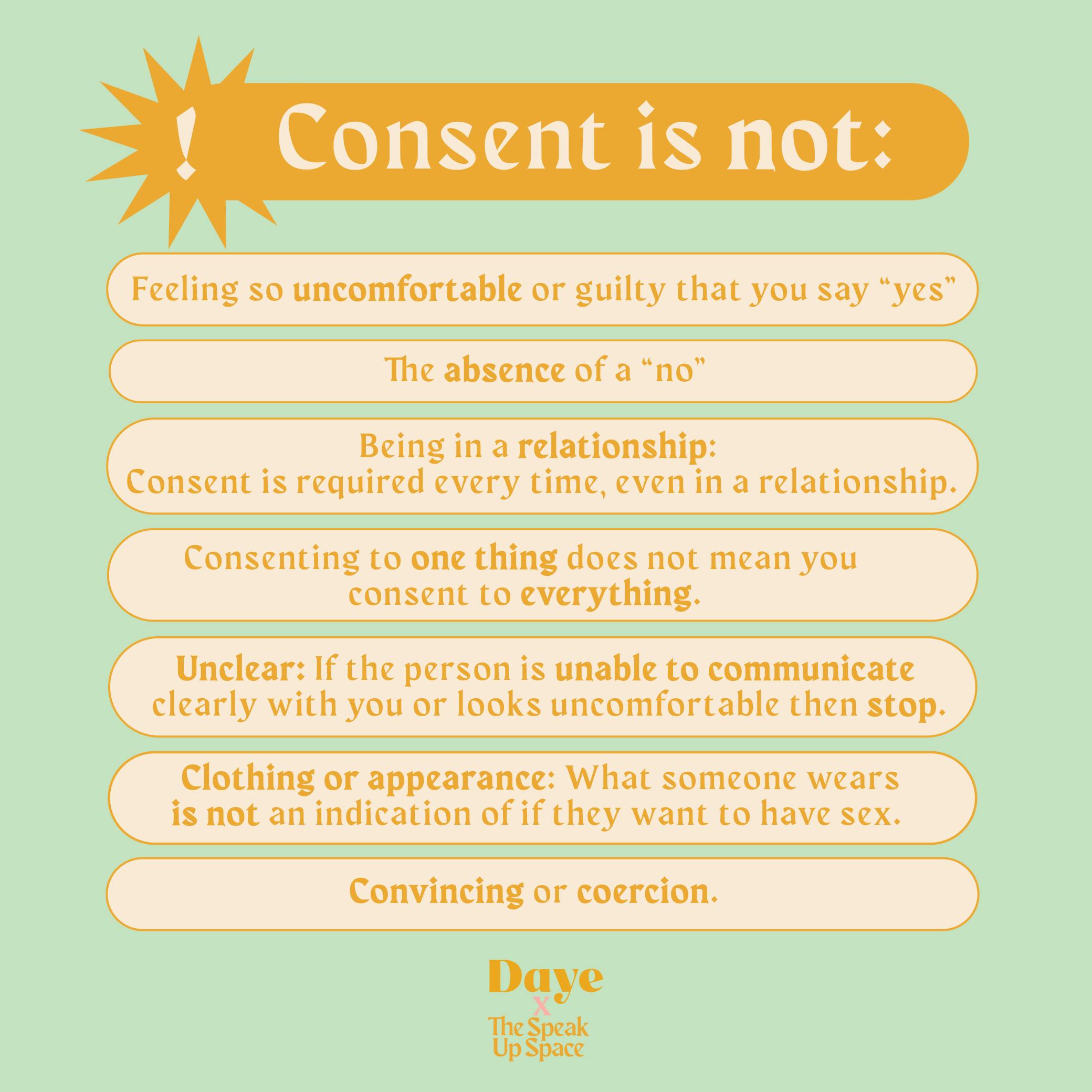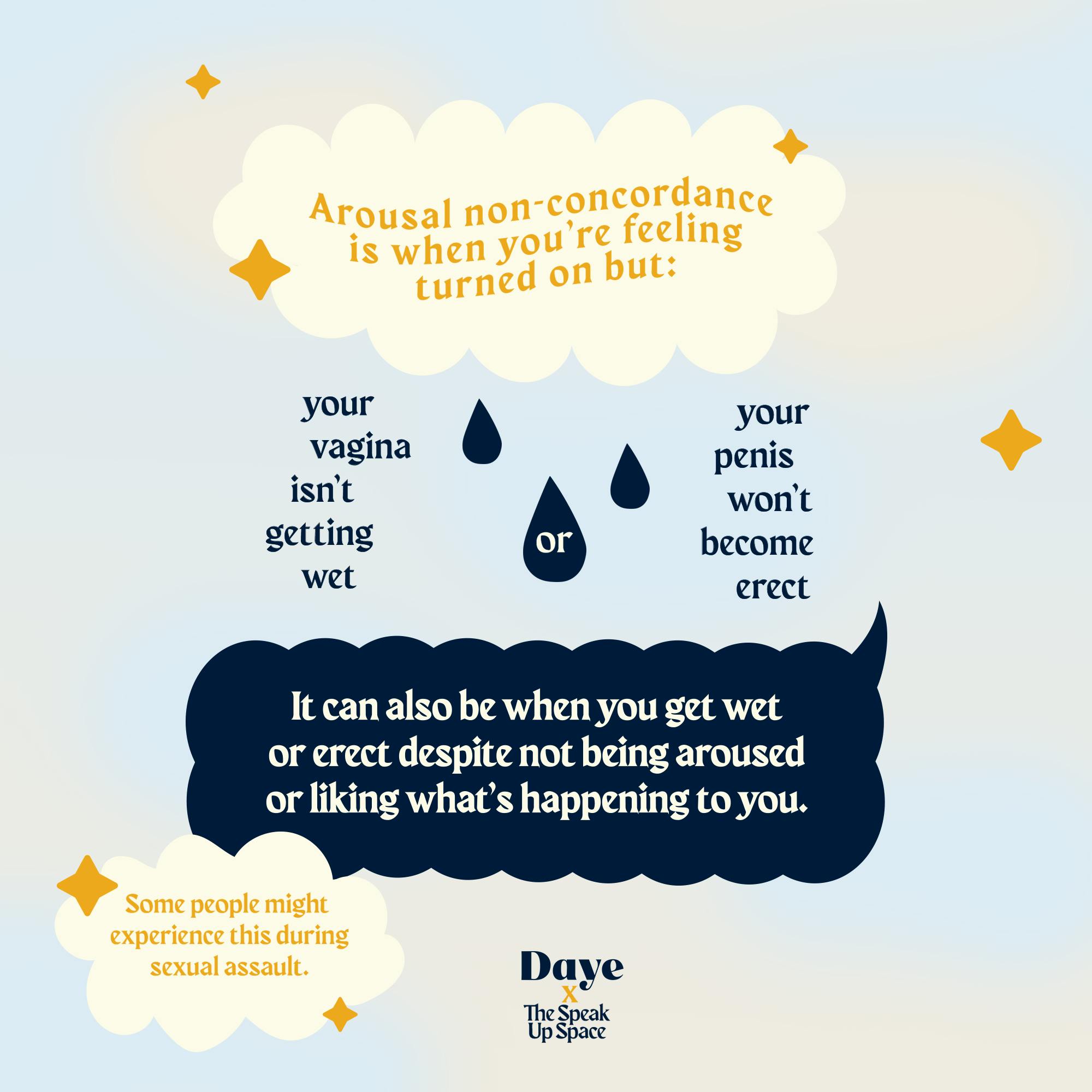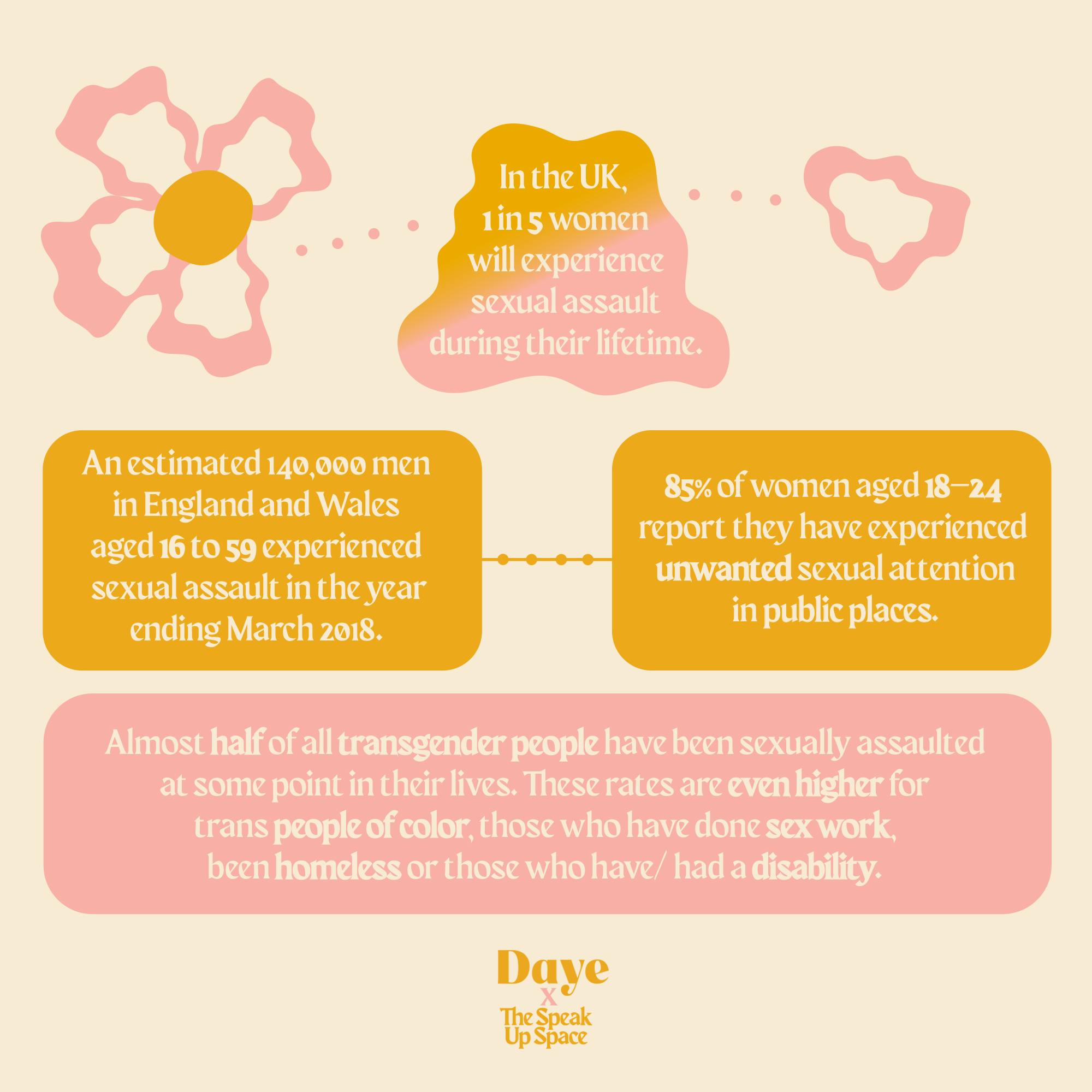Table of contents
Illustrated by Robyn Janine
The myths surrounding consent and sexual assault can make the world of sex a tricky place to navigate, especially for sexual assault survivors.
Some of the most common myths around sex, consent and assault frequently make survivors question the validity of what happened to them, meaning they often don’t speak up about their experience.
We’re all responsible for making our spaces safe for survivors, so that if someone tells you about their experiences, you’re able to respond in the most appropriate way possible. This starts with unlearning myths around consent and sexual assault.
If you yourself are a survivor, your feelings and experiences are valid. You deserve to be heard and you deserve to be believed. What happened to you was not your fault.
Hopefully, reading the truth behind these myths is helpful for you in processing what happened. However, you also may find the following triggering, so please only proceed if you feel as though you are in a good enough headspace.

Myth: your clothes were the reason you were assaulted
Clothes are not a form of consent. Ever. This myth has long been used to invalidate the experiences of survivors and make it seem like it is the fault of the victim rather than the perpetrator.
Taking a glance at photographs from the ‘What Were You Wearing’ exhibit is enough to dispel this myth. People have experienced sexual assault wearing anything, from snowsuits to pyjamas.
Whether you’re dressed modestly or you’re wearing hardly any clothes at all, your consent is still required before anyone can engage in sexual activities with you. If your consent was not given then it is a crime. Remember: clothes do not get assaulted, people do.
Myth: if you were drunk or high it means it was your fault
Being drunk or high does not mean that sexual assault is your fault, nor does it mean that you deserved it. It is okay to have sex while high or drunk only if everyone involved is coherent enough to consent clearly, voluntarily, and unambiguously.
If you are incapacitated by drugs or alcohol, then under UK law you cannot give your consent. If you’re ever not quite sure if someone is able to give their consent because of drugs or alcohol then do not engage in sex with them. It’s always better to be safe than sorry!
Myth: being wet or erect counts as consent
When the genital area is stimulated, even if it is a non-sexual scenario, or a non-consensual sexual scenario, it is not uncommon for your body to react. This is called arousal non-concordance, and it’s a perfectly normal bodily response.
Just because someone laughs when being tickled doesn’t mean that they wanted to be tickled or liked that it was happening – look at arousal non-concordance the same way. It can happen despite your sex or gender, but statistically people with vaginas are less concordant than people with a penis. This means their genitals are more likely to respond to stimuli even when they’re not aroused.
If you experience this during your assault then it does not invalidate what happened to you, and it certainly does not mean that you enjoyed it. It is also important to note that if you notice someone is erect or wet, that does not act as consent and the usual rules of consent still apply.

Myth: consent can’t be revoked
Consent is ongoing and can be revoked at any time! Consenting to one act does not automatically mean that consent has been given for another. In that same breath, consent today is not consent for tomorrow.
Shockingly, a 2018 FPA study found that less than half of people thought it was okay to revoke consent once someone has taken off their clothes. Whether you’re naked, midway through or only just about to get started, you can say stop at any point and your sexual partner should respect that.
This is perhaps also a good time to mention that being in a relationship with someone isn’t consent either! Everyone involved in the relationship still needs to give consent each time you engage in sex together. Sexual assault within relationships is still sexual assault.
Myth: men and people with penises can’t be sexually assaulted
Anyone can be sexually assaulted regardless of their gender. The 2017 Crime Survey for England and Wales reported that 631,000 male victims have experienced some form of sexual assault since the age of 16. The survey also found that approximately 12,000 men (aged 16-59) are raped in the UK every year.
The myth that men and people with penises cannot be sexual assault victims is extremely damaging, and it prevents a lot of survivors from speaking up. Believe survivors regardless of their gender.

Myth: it counts as consent if you were pressured into saying yes
Consent must always be voluntarily given. If you are pressured, feel too scared to say no, have been tricked into saying yes, guilt-tripped into saying yes or anything similar, that’s not consent – it’s sexual coercion.
Coercion is not consent. No one is required to have sex with another person and no one should make you feel guilty for choosing not to. Sex should be enjoyable for everyone involved and should never require manipulative tactics in order for people to take part.
Myth: everyone reacts to being sexually assaulted in the same way
Everyone reacts differently to sexual assault, this includes while it’s happening and also in the aftermath of what happened. It’s often assumed that rape victims will always fight back against their attacker, but for many people this isn’t the case. Some people’s natural response is to freeze, while for others the threat of further violence is enough for them to cooperate with their attacker.
The absence of a struggle does not mean that what happened was consensual, the same way that the absence of a “no” does not mean “yes”.
There’s no “right” way for a survivor to behave after sexual assault. Everyone copes with traumatic events in their own way and that must be respected. Even if someone appears fine, that doesn’t mean they’re okay with what happened or that they should not be believed.
Myth: sex workers can’t be sexually assaulted
Sex workers are still required to give consent, both during their work and outside of their work. Just because someone is a sex worker does not mean that they want sex all the time, or that they’re willing to engage in a sexual act.
And yet, sex workers have a 45-75% chance of experiencing sexual violence during their career. Like everyone else, sex workers have boundaries and deserve to be treated with the same level of respect as everyone else. Their profession has nothing to do with the validity of their experiences.






